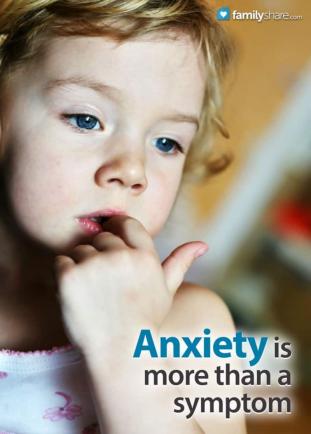
Has your child been diagnosed with Attention Deficit Hyperactivity Disorder (ADHD) or Autism? You might need to take a closer look. Anxiety is more than a symptom. It can be a mental disorder that needs to be treated. Years of misdiagnosis for my son took a huge toll on our family.
Early Diagnosis
My son was diagnosed with ADHD at the age of two. A doctor put him on a psycho-stimulant medication (e.g. Ritalin, Concerta, Metadate). He continued with some form of this medication until the age of 15. Through the years, he was diagnosed with additional co-morbid conditions: depression, dyslexia, dysgraphia, Irlen Syndrome, learning disabilities, impulsivity, social dysfunction, Oppositional Defiance and Obsessive Compulsive Disorder (OCD). At the age of nine, he was diagnosed with Autism.
Puberty and Increased Anxiety
Let's face it. Puberty is a difficult time for most children. But as puberty descended on my son, he became increasingly aggressive. His doctor continued to increase the dose of psycho-stimulant medication, but his behavior escalated. A therapist mentioned Anxiety Disorder and suggested I speak with my son's prescribing doctor. Each time I brought up my son's increasing level of anxiety, the doctor dismissed it as a symptom of his other conditions.
Teenage Culmination
At the age of 15, my son became completely unstable. His obsession with Lego building spiraled to the point he didn't stop for food or sleep. He was failing school, becoming increasingly violent with others and damaging property. Again, his doctor increased his psycho-stimulant medication. After he tried to harm his brother, we rushed him to an emergency room where he had to be sedated three times and put in lockdown with a security guard. The on-call psychiatrist suggested an in-patient program at a neuropsychiatric center.
Inpatient Program
Through inpatient care, my son received new testing. He was reassessed with a primary diagnosis of Anxiety Disorder, then Depression and Autism. His inpatient doctor explained that the large quantity of psycho-stimulant drugs had driven my son to a wired state of frenzy in which he'd used the obsession of building to curtail some of the raw, hyper stress racing through him at a constant rate. The doctor took him completely off all psycho-stimulants and implemented a positive behavioral plan. The results were astonishing.
The Aftermath
Does my son still have difficulties? Yes. Is he still on medication? Yes. I do believe there is a place for medication in treatment. What we have learned is when a child has anxiety disorder and is on a stimulant medication, all other mood medications may not be effective. Now that my son is off stimulant drugs, the other mood medications appear to work more effectively. His ADHD behaviors are not being addressed, but his ability to control behavior and mood has greatly improved.
Facts about Anxiety Disorder
Anxiety Disorder affects one out of every eight children, and they are at a higher risk to engage in substance abuse, perform poorly at school, and avoid social situations. It can affect their decision-making capabilities, concentration, perceptions and ability to function in life. It develops from a complex set of risk factors; including genetics, brain chemistry, personality, and life events. Nearly one-half of those diagnosed with Anxiety Disorder are also diagnosed with depression.
Diagnosing Anxiety Disorder
To properly diagnose this disorder, a child must experience a constant, exaggerated worry, fear, apprehension, or distress for over six months. They must also have at least three of the following symptoms: restlessness, easily fatigued, difficulty concentrating, irritability, muscle tension or difficulty sleeping. This anxiety will affect physical health as well, with symptoms such as trembling, achy muscles, headaches, nausea, vomiting, stomachaches, shortness of breath, diarrhea, depression or Irritable Bowel Syndrome.
The Categories of Anxiety Disorder
Anxiety Disorder can be broken down into the following categories:
-
Generalized anxiety
-
Panic disorders
-
Obsessive compulsive disorder
-
Post traumatic stress disorder
-
Acute stress
-
Social phobia
-
And other specific phobias
It is a complicated issue and contains many of the same symptoms seen with other disorders but must be treated separately. Most importantly, educate yourself and then your child's doctor about this complicated disorder. If your doctor is not familiar with the testing and treatment approaches available, seek other help. It could be critical to the well-being of your family, and it might save you from some of the challenges my family has experienced. An excellent resource is Anxiety and Depression Association of America. Visit: http://www.adaa.org today.

